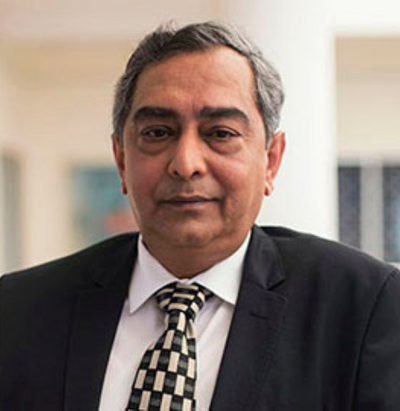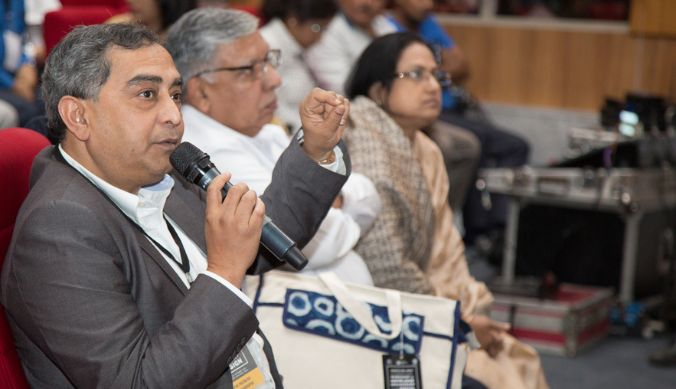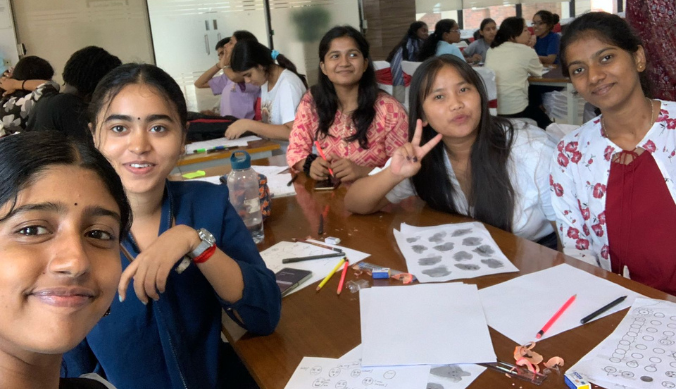Exploring the Data Science Programme with AshokaX
We hope to see more governments giving greater importance to regulatory standards and modifying them to include country and industry-specific factors for evaluation purposes

Partha Pratim Das
24 April, 2024 | 5m readAs a dedicated Computer Science professor with a rich academic and industrial background, I was drawn to Ashoka University due to its commitment to fostering a strongly multidisciplinary and interdisciplinary academic environment, characterised by liberal approaches and flexibility. My personal interest lies in exploring computer science within the context of diverse disciplines, seeking avenues where it can create a meaningful impact beyond its traditional boundaries. The interdisciplinary approach of Ashoka University led me to believe that it could serve as an ideal platform for collaboration across different disciplines, leveraging computer science to drive impactful initiatives.
Data Science for Social Impact
Shortly after joining Ashoka University, an opportunity arose through a request for a proposal from data.org, focusing on data science for social impact. Given our ongoing efforts to establish a center for data science and analytics at Ashoka aimed at enhancing the university’s data infrastructure, this opportunity seamlessly aligned with our objectives. The initiative seeks to empower individuals in the social sector by equipping them with data science tools and methodologies to drive meaningful outcomes and scale impactful initiatives. Collaborating with colleagues, we crafted a proposal tailored to cater to working professionals and fresh graduates alike.
Crafting a Curriculum: A Bridge to Data Science Proficiency
Motivated by the prospect of contributing to such a transformative initiative alongside my full-time responsibilities, I recognised the need for a pedagogical approach that accommodated the constraints of our target audience. Understanding that many participants lacked a comprehensive background in data science, I drew from my experience collaborating with non-computer science professionals, such as oncologists, to devise a curriculum that bridges the gap between domain expertise and data science fundamentals. The resulting 20-week programme comprises two distinct phases: the first focusing on imparting data science concepts through practical examples and tools, while the second delves into domain-specific challenges within climate and health sectors, featuring expert insights and applications of data science.

Learning from Experience
Reflecting on our journey thus far, several insights have emerged, informing our future iterations of the programme. Notably, while we initially opted to deliver the curriculum without programming prerequisites, feedback from participants highlighted the importance of incorporating basic programming skills into the coursework. Moreover, we are exploring the possibility of offering specialised tracks tailored to participants’ experience levels and career aspirations, thereby enhancing the programme’s relevance and effectiveness.
Insights Shaping Programme’s Future
Feedback from participants has been instrumental in refining the programme’s structure and content, underscoring the need for a balanced approach that blends theoretical knowledge with practical application. While challenges were encountered during the domain-specific modules, dedicated learning coordinators played a pivotal role in facilitating hands-on sessions and providing additional support, ensuring participants remained engaged and motivated throughout the programme.
Charting New Frontiers
The programme’s benefits extend beyond acquiring technical skills, with participants expressing newfound insights into the potential of data science for social impact. Opportunities for further engagement, such as fellowship offers from organisations like J-PAL, underscore the programme’s potential to catalyse career transitions and foster interdisciplinary collaboration.
In conclusion, my involvement in this programme exemplifies Ashoka University’s commitment to driving positive change through innovative, interdisciplinary education. By harnessing the collective expertise of faculty members and industry partners, we have created a dynamic learning environment that empowers participants to leverage data science for social good. As we continue to refine and expand the programme, I remain optimistic about its potential to shape the future of data-driven social innovation, both locally and globally.
(Written by Partha Pratim Das, Program Director – PEDP Data Science for Social Impact, Director – Centre for Data Science and Analytics, Visiting Faculty – Department of Computer Science, Ashoka University)
Study at Ashoka













